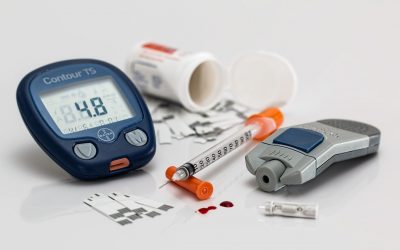
Risk factors for cardiovascular disease
Welcome to the section of the learning centre all about risk factors for cardiovascular disease. In this section you will learn about the non-modifiable risk factors and the modifiable risk factors for heart disease.
Simply put, non-modifiable risk factors are factors we cannot change. They are factors we need to learn to accept and its important to be made aware of them.
In comparison, modifiable risk factors such as smoking and inactivity are factors than we can control and do something about. Through lifestyle change we can take control of these factors and reduce their impact.
Non modifiable risk factors
I want to keep this section quite brief and simple. It is important we are made aware of these risk factors but obviously being non-modifiable there is nothing we can do about them.
The first one is age. Cardiovascular disease is a progressive condition affecting our coronary arteries. Predictably therefore, as we get older it is more likely there will be damage to our coronary arteries. Cardiovascular disease rarely occurs before the age of 30 and as we age the risk increases. Like I mentioned earlier, there is nothing that can be done about this but through keeping a healthy diet and active lifestyle we can keep our heart and coronary arteries healthy.
Next is gender. Sorry to the men reading, cardiovascular disease is more likely to occur at a younger age in men than it is in women. Women are protected by oestrogen until menopause. Oestrogen controls cholesterol levels and so reduces the build-up of fatty deposits in the arteries. After menopause, less oestrogen is produced at which point cardiovascular risk increases. Now, this is different for everybody depending on their lifestyle but research shows that males are more at risk of having a heart attack from the age of 45 and females age 55. Keeping a healthy lifestyle and exercising regularly will help to reduce this risk considerably.
Family history. Cardiovascular disease runs in families. If a first-degree male relative (father or brother) had a heart event before the age of 55 or if a first degree female relative had one before the age of 65 you are at a greater risk of developing cardiovascular disease. If both parents suffered from heart disease before 55 you could be 50% more likely to develop CVD than the general population. Environmental factors also come into play here such as smoking or a high fat diet. When combined with genetic influences, the risk increases. But again this is completely out of your control. What you can control is keeping your lifestyle as healthy as possible to reduce your risk.
And finally, ethnic origin. In the UK, south Asian communities show a higher than average incidence of cardiovascular disease, whereas afro Caribbean origins show a lower than average incidence. It is likely that this is influenced by environmental factors such as socio-economic status and place of residence. Genetics are also likely to play a role.
But that sums up the non-modifiable risk factors of cardiovascular disease. It’s important we take note and become aware of these however its more important not to dwell on them or worry about them as they are out of your control. Next we move on to factors that you can control; modifiable risk factors of cardiovascular disease.
Sitting
We live in a society where it is all to common for us to have desk jobs, drive to work, spend our down time in front of the TV or computer and...
Stress
Stress, a very underrated but increasingly common risk factor for heart disease. Some do not count it as a risk factor for heart disease, but...
Inactivity
Your heart is a muscle and like any other muscle in your body it needs physical activity or exercise to enable it to function effectively....
Diabetes
Diabetes is a condition which causes high levels of glucose (sugar) in your blood. Insulin is secreted by the pancreas in response to...
Obesity
Obesity is defined as individuals with a body mass index (BMI) over 30. In 2017, 64% of adults in England were classed as overweight or obese....
Alcohol
The bad news is there is a strong link between excess alcohol and high blood pressure, abnormal heart rhythms, damage to your heart muscles...
Hyperlipidaemia
Hyperlipidemia, or more simply high cholesterol. You probably know that cholesterol is a type of fat that is found in your blood which is...
Hypertension
Also known as high blood pressure meaning that your blood pressure is consistently high and so your heart is constantly working harder to pump...
Smoking
Smoking increases your risk of coronary heart disease 2-3 times compared to non-smokers. This is increased by the number of cigarettes smoked...









